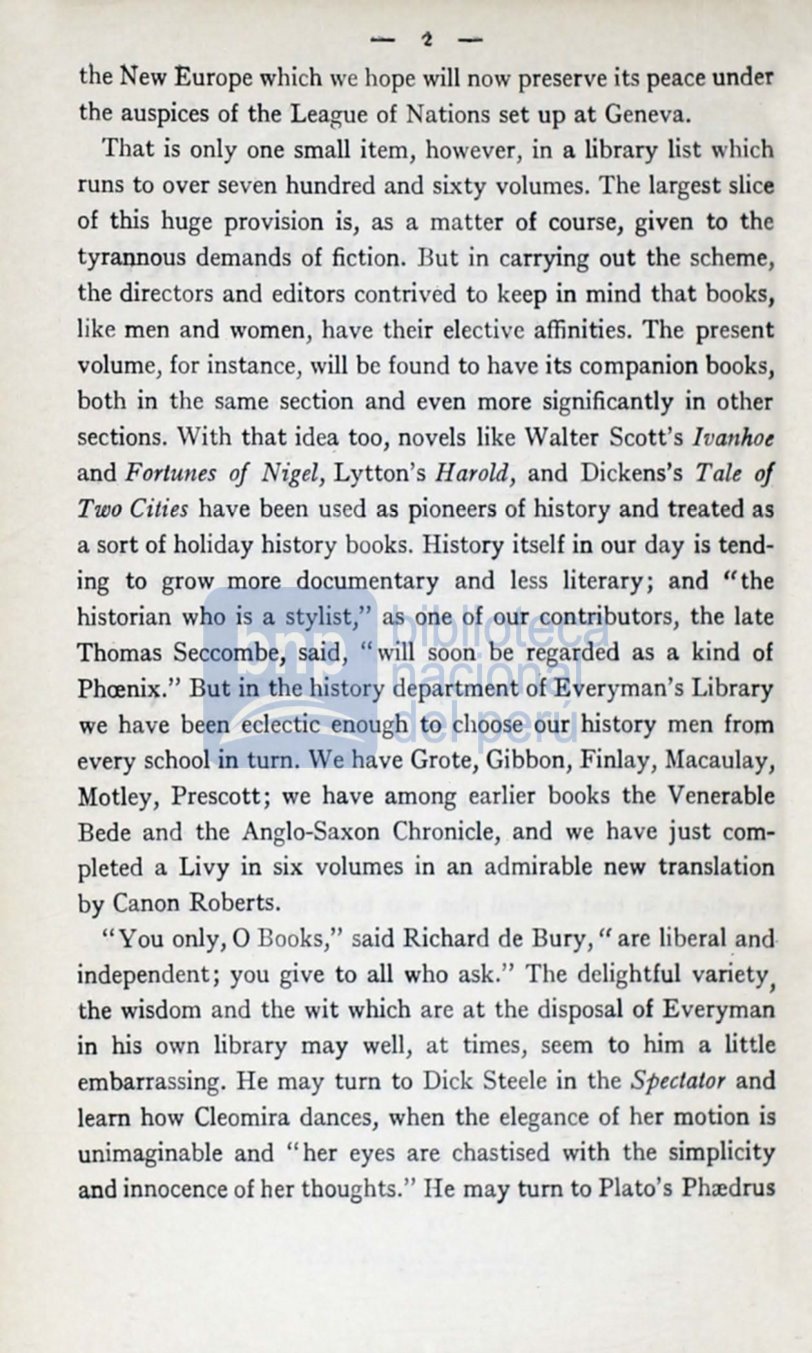

-
-i
-
the New l!:urope which we hope will now preserve its peace under
the auspices of the League of ations set up at Geneva.
That is only one small ítem, however, in a library list which
runs to over seven hundred and sixty volumes. The largest slice
of this huge provision is, as a matter of course, given to the
tyrannous demands of fiction. But in carrying out the scheme,
the directors and editors contrived to keep in mind that books,
like men and women, have their elective affinities. The present
volume, for instance, will be found to have its companion books,
both in the same section and even more significantly in other
sections. With that
ide~
too, novels like Walter Scott's
l vanhoe
and
Fortunes of Nigel,
Lytton's
Harold,
and Dickens's
Tale of
Two Cities
have been used as pioneers of history and treated as
a sort of holiday history books. History itself in our day is tend–
ing to grow more documentary and less literary; and "the
historian who is a stylist," as one of our contributors, the late
Thomas Seccombe, said, " will soon be regarded as a kind of
Phrenix." But in the history department of Everyman's Library
we have been eclectic enough to choose our history men from
every school in turn. We have Grate, Gibbon, Finlay, Macaulay,
Motley, Prescott; we have among earlier books the Venerable
Bede and the Anglo-Saxon Chronicle, and we have just com–
pleted a Livy
in
six volumes in an admirable new translation
by Canon Roberts.
"You only, O Books," said Richard de Bury, "are liberal .and·
independent; you give to ali who ask." The delightful variety,
the wisdom and the wit which are at the disposal of Everyman
in his own library may well, at times, seem to him a little
embarrassing. He may turn to Dick Steele in the
Spectator
and
leam how Cleornira dances, when the elegance of her motion is
unimaginable and " her eyes are chastised with the simplicity
and innocence of her thoughts." He may tum to Plato's Phredrus
















